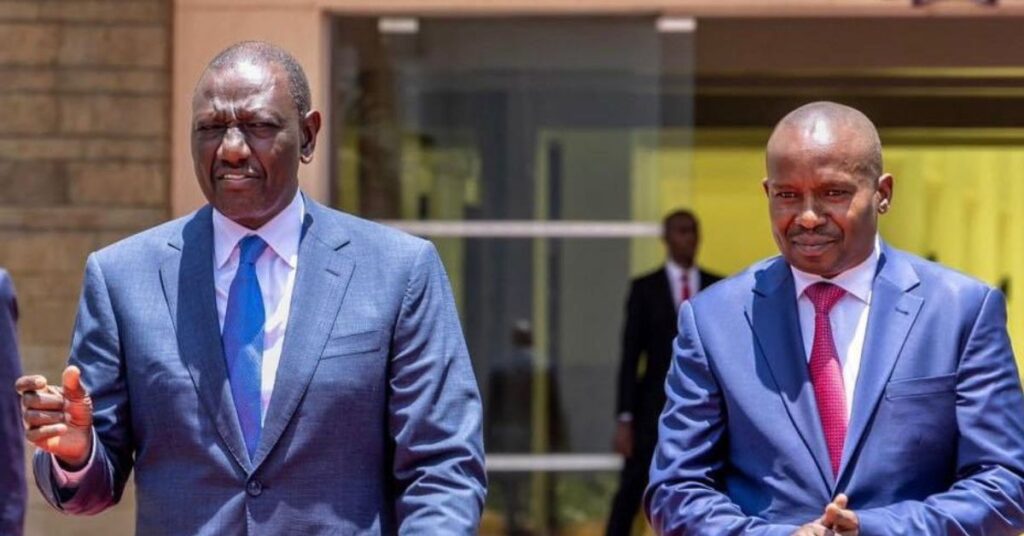Two weeks after President William Ruto criticized the Office of the Director of Public Prosecutions (ODPP), his Deputy, Kithure Kindiki, has voiced a contrasting opinion regarding the office’s operational independence.
During the launch of the ODPP Strategic Plan 2023-2027 in Nairobi, Kindiki emphasized the importance of maintaining the prosecutor’s independence.
“The decisions you make on who to prosecute or which prosecutions to terminate should remain free from interference,” said Kindiki. He further elaborated that independent offices must enjoy decisional autonomy, allowing them to operate without pressure from external authorities.
This statement comes just 13 days after President Ruto, in his State of the Nation Address on November 21, openly criticized the ODPP and the Ethics and Anti-Corruption Commission (EACC). The President accused them of failing to effectively prosecute corruption cases and also questioned the Judiciary’s delays in resolving such cases.
“It is unacceptable for the Director of Public Prosecutions to drop cases due to an inability to produce witnesses. Similarly, corruption suspects cannot continue using anticipatory bail to avoid due process and obstruct investigations,” President Ruto remarked. He urged anti-corruption institutions to go beyond claiming independence and actively meet public expectations on integrity issues.
The Head of State expressed concern over the frequent dismissal of cases by the ODPP, citing insufficient evidence and unavailability of witnesses as major setbacks in the fight against graft.
On the other hand, Kindiki stressed that for institutions like the ODPP to function effectively, they must be allowed to manage their own operations, including financial independence.
“The ODPP must exercise administrative independence, running its operations within an established command structure,” he said.
While backing the need for autonomy, Kindiki also urged the ODPP to overcome its challenges and play a pivotal role in transforming Kenya’s legal system.

